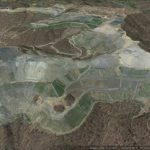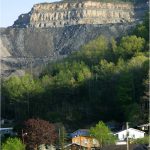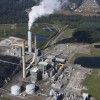Posts Tagged ‘Water Pollution’
DEP Orders Coal Prep Plants to Disclose Chemicals
An April order by the West Virginia Department of Environmental Protection requires the state’s approximately 90 coal preparation plants to disclose the chemicals used to process coal. The DEP order follows a series of coal-related spills in early 2014 and the discovery that many potentially hazardous products used to process coal were previously not required…
Read MoreFracking Concerns Fuel Research, Government Opposition
The latest hydraulic fracturing news includes new fracking bans and moratoriums and an increase in earthquakes linked to underground injection of fracking wastewater.
Read MoreAnother challenge facing coal: Cleaning up

A story found “In the Hills and Hollows”

One month, two hearings on mountaintop removal

Keep the Clean Water Act going strong
Last week, the U.S. Environmental Protection Agency ended a decade of confusion with the release of a long-awaited Clean Water Rule, which clarifies the scope of waters that are protected under the Clean Water Act. As the EPA pursues updates to the “effluent limitation guidelines,” we hope the Obama administration ready to continue the trend of strengthening and modernizing the Clean Water Act.
Read MoreSilas House: A Remembrance of Jean Ritchie

Appalachian communities are still at risk

Video Shows Rare View of Mountaintop Removal Mining
CONTACT: Cat McCue, Communications Director, (434) 293-6373; cat@appvoices.org A short video released today by Appalachian Voices with stunningly detailed drone footage provides a rare view of mountaintop removal coal mining and the increasing proximity of this destructive form of mining to people living in Appalachia. The video also includes interviews with local citizens who want…
Read MoreDuke Energy to close aging Asheville coal plant


